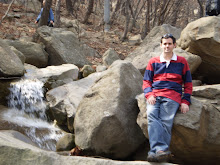 The U.S. and Korea have been in negotiations over a free trade agreement (FTA) for some time now. Up to now, Korea hasn't imported U.S. beef, and an FTA would require that to change. For one controversial reason or another, this has sparked a fear among many Koreans that importing U.S. beef means risking the importation of Mad Cow Disease. Late last year, a number of anti-FTA protests took to the streets of Seoul, and one of them became violent after dark.
The U.S. and Korea have been in negotiations over a free trade agreement (FTA) for some time now. Up to now, Korea hasn't imported U.S. beef, and an FTA would require that to change. For one controversial reason or another, this has sparked a fear among many Koreans that importing U.S. beef means risking the importation of Mad Cow Disease. Late last year, a number of anti-FTA protests took to the streets of Seoul, and one of them became violent after dark.The law has been brought before the Constitutional Court for review, arguments have been heard, and the court's decision will be announced within a month or two. Interesting from an American perspective, the court held a public hearing to get the public's opinion on the law and its relationship to the constitution.
As Americans, we're taught that our laws protect freedoms of speech and assembly to a greater extent than anywhere else in the world. I find it quite interesting then, that the Korean Constitution Court is considering striking down a law that I believe would pass constitutional muster in the U.S. The U.S. Supreme Court allows restrictions on the right of assembly under the doctrines of "clear and present danger" (Dennis v. United States), or in ways that are "content-neutral"(see, e.g., Hill v. Colorado), for example.
The law passed by Korea's National Assembly is content-neutral and is backed by the force of recent history. That is to say, to my knowledge the great majority of night protests over the past two decades have turned violent or at least damaging to private property. Based on the Korean constitution's language that "licensing of assembly . . . shall not be recognized," the Constitutional Court may have to protect freedom of assembly to a greater extent than the U.S. Or, maybe it will point to one of the other articles of the Korean constitution (Art. 21 (4) comes to mind) as a reason not to.







No comments:
Post a Comment